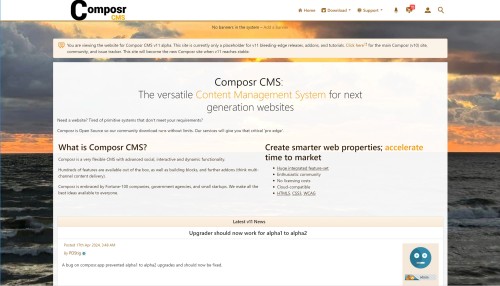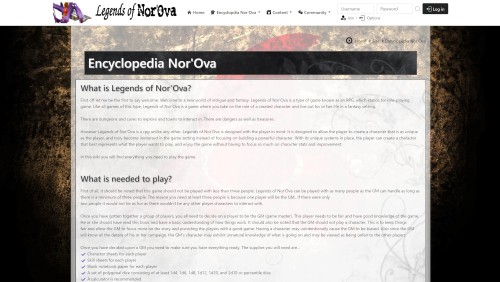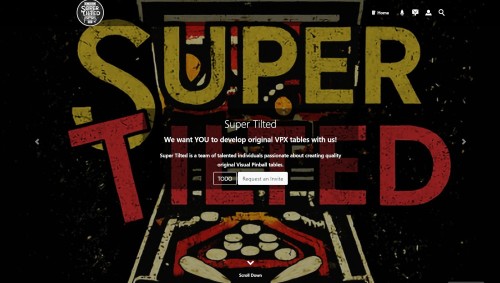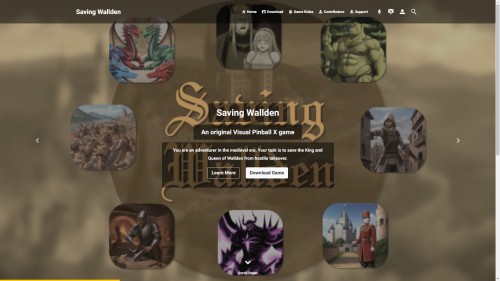Featured Sites: A-Z Index
H
Newest 10 Entries
| Question | What is "pinging" and how does it work in Composr? |
|---|---|
| Answer | In blogging, "pinging" is an automatic notification sent to blog search engines and other services when you publish a new post. Composr can automatically ping services defined in Admin Zone > Setup > Configuration > Feature options. These services then index your new article, making it searchable. A default ping service (http://pingomatic.com/ping/?title=title&blogurl=url&rssurl=rss) is pre-configured to relay your ping to numerous other services. You can customize the ping URL with these placeholders:
Pinging only occurs for news categories accessible to the public (guests). |
| Question | How do I schedule a news post to be published at a specific time? |
|---|---|
| Answer | Once you have enabled the system scheduler (requires the Composr calendar and commandr addons), an advanced scheduling option will appear when adding or editing news posts. By setting a future date and time, your post will remain unvalidated until the chosen time, at which point it will be automatically validated and published. |
| Question | How can members edit their profiles and account settings? |
|---|---|
| Answer | Members can edit their profiles and account settings through the "Edit" tab on their profile page. They can change their password, update personal information, manage their avatar and signature, and adjust their privacy settings. Administrators have access to additional options for managing member accounts. |
| Question | What is the difference between member terms? |
|---|---|
| Answer |
It's important to understand these distinctions to properly manage permissions, track user activity, and personalize the website experience. |
| Question | What are Welcome Emails and how do they work? |
|---|---|
| Answer | Welcome Emails are a series of automated emails sent to new members on a predefined schedule. They can be used to introduce the website's features, encourage engagement, and provide helpful information. Website administrators can customize the content and schedule of these emails. |
| Question | How can I enhance or enforce the security of member passwords? |
|---|---|
| Answer | Composr offers several features to improve password security:
|
| Question | Can I import or export member data? |
|---|---|
| Answer | Yes, Composr allows you to import and export member data using CSV spreadsheet files. This is useful for transferring member information between different systems, performing bulk updates, or creating backups. The export feature provides various filtering options, and the import feature supports adding new members and updating existing ones. Go to Admin Zone > Security > Members > Export members. |
| Question | What are usergroups and how do they work? |
|---|---|
| Answer | Usergroups are a way to categorize members and assign them specific permissions and privileges. Each member can belong to one or more usergroups, and the permissions granted by those usergroups determine what actions they can perform on the website. Website administrators can create and manage usergroups, define their permissions, and assign members to them. They can also assign leaders who then have permission to manage the members of that specific usergroup. |
| Question | What are Custom Profile Fields (CPFs) and how are they used? |
|---|---|
| Answer | CPFs allow website administrators to collect additional information from members beyond the basic profile fields. These fields can be customized to fit the specific needs of the website, such as collecting job roles, hobbies, or interests. CPFs can be used to:
|
| Question | How do new members join a Conversr website? |
|---|---|
| Answer | Members can join your Composr site in a few ways:
|
Top 10 Entries
| Question | What is "pinging" and how does it work in Composr? |
|---|---|
| Answer | In blogging, "pinging" is an automatic notification sent to blog search engines and other services when you publish a new post. Composr can automatically ping services defined in Admin Zone > Setup > Configuration > Feature options. These services then index your new article, making it searchable. A default ping service (http://pingomatic.com/ping/?title=title&blogurl=url&rssurl=rss) is pre-configured to relay your ping to numerous other services. You can customize the ping URL with these placeholders:
Pinging only occurs for news categories accessible to the public (guests). |
| Question | How do I schedule a news post to be published at a specific time? |
|---|---|
| Answer | Once you have enabled the system scheduler (requires the Composr calendar and commandr addons), an advanced scheduling option will appear when adding or editing news posts. By setting a future date and time, your post will remain unvalidated until the chosen time, at which point it will be automatically validated and published. |
| Question | How can members edit their profiles and account settings? |
|---|---|
| Answer | Members can edit their profiles and account settings through the "Edit" tab on their profile page. They can change their password, update personal information, manage their avatar and signature, and adjust their privacy settings. Administrators have access to additional options for managing member accounts. |
| Question | What is the difference between member terms? |
|---|---|
| Answer |
It's important to understand these distinctions to properly manage permissions, track user activity, and personalize the website experience. |
| Question | What are Welcome Emails and how do they work? |
|---|---|
| Answer | Welcome Emails are a series of automated emails sent to new members on a predefined schedule. They can be used to introduce the website's features, encourage engagement, and provide helpful information. Website administrators can customize the content and schedule of these emails. |
| Question | How can I enhance or enforce the security of member passwords? |
|---|---|
| Answer | Composr offers several features to improve password security:
|
| Question | Can I import or export member data? |
|---|---|
| Answer | Yes, Composr allows you to import and export member data using CSV spreadsheet files. This is useful for transferring member information between different systems, performing bulk updates, or creating backups. The export feature provides various filtering options, and the import feature supports adding new members and updating existing ones. Go to Admin Zone > Security > Members > Export members. |
| Question | What are usergroups and how do they work? |
|---|---|
| Answer | Usergroups are a way to categorize members and assign them specific permissions and privileges. Each member can belong to one or more usergroups, and the permissions granted by those usergroups determine what actions they can perform on the website. Website administrators can create and manage usergroups, define their permissions, and assign members to them. They can also assign leaders who then have permission to manage the members of that specific usergroup. |
| Question | What are Custom Profile Fields (CPFs) and how are they used? |
|---|---|
| Answer | CPFs allow website administrators to collect additional information from members beyond the basic profile fields. These fields can be customized to fit the specific needs of the website, such as collecting job roles, hobbies, or interests. CPFs can be used to:
|
| Question | How do new members join a Conversr website? |
|---|---|
| Answer | Members can join your Composr site in a few ways:
|







